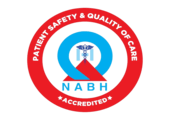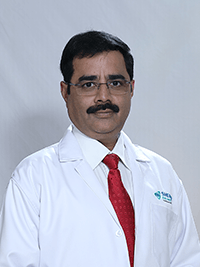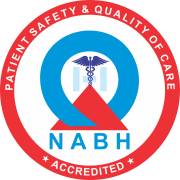Preventive eye care is the first line of defense against vision problems. Early detection of vision problems may offer more effective treatment options.
Watch Preventive Eye Care Measures on Shekar Eye Hospital YouTube Channel
Read ahead to know more about how you can prevent eye damage by following these practices before it is too late:
Do not wait for any eye problems to arise and see your ophthalmologist on a preventive eye care basis.
12 Preventive Eye Care Measures
1. Get regular eye check ups for yourself and your family.
What is the ideal age for an eye check up?
A child may have a congenital issue that makes it vital to conduct a mandatory precautionary eye check-up at birth.
Sometimes the child may have redness with discharge and watering, called neonatal conjunctivitis, hence require an eye exam at birth. Unquestionably, an eye exam at birth is of utmost importance, in cases when:
- The baby is born prematurely
- Is on a ventilator requiring oxygen
In such situations, a condition called retinopathy of prematurity may occur. Proper attention to the eyes must not be missed at birth. As a matter of fact, it can affect the development of the eyes and lead to poor vision.
Conduct the next eye check-up when the child is about 2-3 years of age, to rule out any refractive error in the eyes. It is a common condition, and nearly 15% of children may have refractive errors and require spectacles.
Conduct eye check-ups frequently if the child’s parents wear specs (have refractive errors.)

Also, uncorrected refractive errors can lead to a condition called “lazy eye” or amblyopia at that age. This condition can hamper the overall development of the child. For this purpose, a second preventive check-up is mandatory.
Furthermore, if you suspect squinting of the eyes (cross-eyes), conduct an additional check-up with the strabismologist.
Subsequently, every six monthly check up for children with refractive errors and once in two to three years,even if everything is normal, is required.
At 18 years of age, one more eye check-up is mandatory.
In adults, if your occupation requires long hours of screen time, exposure to dust/bright light, then you must conduct an eye check-up annually.
Beyond 35 years, certain physiological changes happen in the eye that gradually limits our focusing ability for near objects. This is called presbyopia or long sight. Also, beyond 40,certain other age related changes occur in the eye. One must get a comprehensive eye examination annually to rule out conditions like glaucoma and cataract.
Between the age of 40 to 60, get an eye-check up in detail by an ophthalmologist for the purpose of diagnosing eye conditions like cataract, glaucoma and age related macular degenerations in time, to prevent irreversible blindness. Illnesses like glaucoma are silent, so being proactive in these situations is the best.
Confusions are common between eye checkups and eye testing. In a similar fashion, people also get confused between ophthalmologists, ocularists, and optometrists. Knowing the differences between them is imperative. Only an ophthalmologist can provide a comprehensive eye care.
2. Quit Smoking :
Smoking is known to damage our heart and lungs, but it also increases the risk of age related macular degeneration, cataract, glaucoma and dry eyes. It’s Smoking destructive to the eye’s cells and can cause irreversible damage to the eye. Additionally, avoid passive smoking as it is equally dangerous.
3. Wear Sunglasses:
Exposing your eyes to the sun can cause damage to your eyes. Wearing sunglasses can make you look great and can protect your eyes from harmful UV Rays. Purchase the ones that block out UV-A as well as UV-B rays.
4. Awareness about hereditary diseases :
Many eye conditions like glaucoma, refractive errors, squint, ptosis and retinal degeneration are hereditary. Early detection is the key in managing them better. Make yourself aware of the risks.
5. Provide proper rest to your eyes:

In today’s world, screen time has increased due to multiple reasons. We must provide our eyes the needed rest by reducing screen time. Looking away from your devices after a short duration (rule of 20-20)can help to prevent tired eyes. Rest your eyes for at least 5 minutes per hour if your schedule does not allow you time off your screen.
You could additionally blink frequently, which can help in preventing dryness.
6. Also, maintain appropriate hygiene while wearing contact lenses:
Wash your hands with soap thoroughly for a minute before putting your lenses in. To avoid any infection, follow the instructions of wearing contact lenses properly.
7. Maintain a Healthy, Balanced Diet:
Maintaining a healthy diet can be fruitful for your eyes and can prevent damage. A diet rich in omega-3 fatty acids, vitamins, zinc, and much more can help in boosting your eye health. Consuming Green Leafy vegetables is an added advantage to your eyes.
8. Keep your Blood Sugar in Control:
You can prevent blindness caused by diabetes by keepinga check on your blood sugar levels. Annual diabetic eye check up is mandatory. Pts
9. Exercise regularly & maintain your weight:
Obesity impacts health in multiple ways, can lead to diseases that can further lead to eye problems. It is always better to exercise regularly and maintain a healthy weight and BMI.
10. Protect your eyes from external damage:
You must wear safety eye gear to protect your eyes from any external hazards especially while driving. Certain occupations like welding, carpentry mandates protective eye wear to prevent vision threatening injuries.
11. Use eye makeup cautiously:
Discard the eye makeup after a few months of use. Never share your makeup. If you notice anything affecting your eyes after the first use, contact your ophthalmologist immediately and discard the makeup item if needed.
12. Do not ignore any symptoms:
Above all, get an eye check-up by an ophthalmologist immediately if you are suffering from any issue with your eyes, even if it is the slightest issue.
Your eyes are your most valuable asset. You need to protect them. We at Shekar Eye Hospital are here to ensure that your vision remains flawless always. Your eyes shall be in the best hands with Dr. Y.L. Rajashekar and his team of experts. Book an appointment now and get a step ahead in preventing eye diseases at an early stage.
Related Topics:








